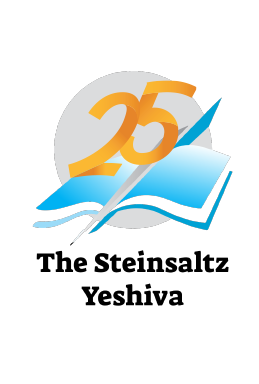The core mission of the Steinsaltz Yeshiva is to create a cadre of rabbis, teachers, and lay professionals who embrace Rabbi Steinsaltz’s educational philosophy:
-Torah learning belongs to every Jew.
- All Jews merit the respect and love of their fellow Jews.
- All graduates commit their talents and time to making their part of the world a better place.
“Our students' lives must reflect a living brand of Judaism, one that exudes passion, pride, the daily relevance of God, Torah, and the land of Israel - all this rooted in knowledge and personal experience”
Rabbi Adin Even-Israel Steinsaltz
Rabbi Michel Falk, Rosh Yeshiva of the Steinsaltz Yeshiva, summarizes its essential mission in the following way:
“Rabbi Steinsaltz committed his entire life to enabling the Jews to take ownership of their Judaism. His commentary and translation of the Talmud, the Tanach, the Mishna, and Maimonides’ Mishneh Torah, as well as his many other writings, are only part of this effort.
“Throughout his remarkable years, Rabbi Steinsaltz invested substantial time to improve and reform Jewish education, especially by creating his own yeshiva.
“This effort more than just an understanding and belief in the importance of high-level Jewish education. Rabbi Steinsaltz explained many times to the students that he had only two hands, two legs, and one head. His mission was so great that he needed many more heads, hands, and legs to do all the critical work ahead. His students had to join him.
“The essential help can come in many ways: writing, editing, teaching, managing, or becoming significant members of our Jewish community.
“The only way we can significantly advance Rabbi Steinsaltz’s mission is if the students are learn to think and study on their own, receive a broad education, develop a deep Jewish identity, and – most important of all – take responsibility for themselves and for others. It is these qualities that we try to ingrain in our students in the Steinsaltz Yeshiva.”
The Philosophy of Rabbi Steinsaltz is at the Heart of our Yeshiva.

Students and graduates were recently asked what makes Rabbi Steinsaltz’s yeshiva exceptional.
Here are some of their answers:
- Some yeshivas teach their students what to think. Other yeshivas teach their students how to think. At the Steinsaltz Yeshiva, the focus is on the Talmud and how it thinks. At the Steinsaltz Yeshiva, we want to silence our subjective voices and hear the uninterrupted voices of Rav Ashi, Ravina, and all the other Talmudic Sages themselves. The Steinsaltz Yeshiva is less interested in covering as much Gemara as possible than in learning how the Talmud works. The students learn how to take ‘ownership’ of the text.
- At the Steinsaltz Yeshiva, the meforshim (commentators) are not opened until a late stage of learning the text. When you get to the commentaries, you see that you have already raised many of the questions that the commentaries asked.
- The atmosphere of our yeshiva is like a Chassidic shtibel. Students are seriously focused on their spiritual lives. Rather than devoting the whole day solely to Gemara, students at the Steinsaltz Yeshiva pursue their own areas of interest in Torah learning. Students have the freedom to research whatever they want. The Steinsaltz Yeshiva stresses personal responsibility as a vital principle of our yeshiva experience.
- The students are a diverse group: older and younger, different backgrounds, levels of education, and culture. Students learn by experience, how to converse and be comfortable with different kinds of people.
- In the Steinsaltz Yeshiva there is a deeply respectful atmosphere, but an informal one as well. For example, students often address their teachers by first name with no disrespect. In contrast to most yeshivot, no one at the Steinsaltz Yeshiva ‘stands on ceremony.’ They talk ‘straight’ to each other.
- The Steinsaltz Yeshiva is not for everyone.
It requires significant personal independence in an atmosphere of freedom and individual accountability.

